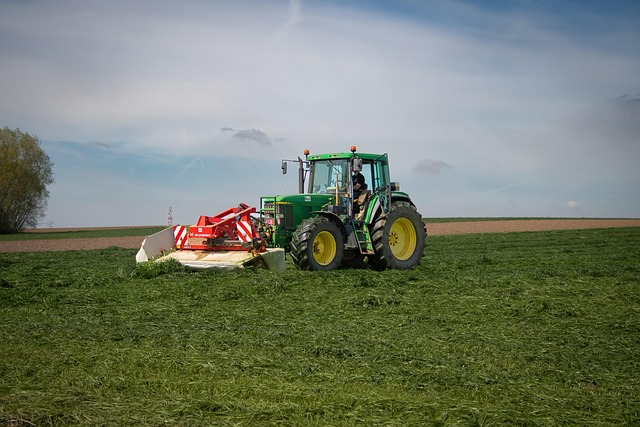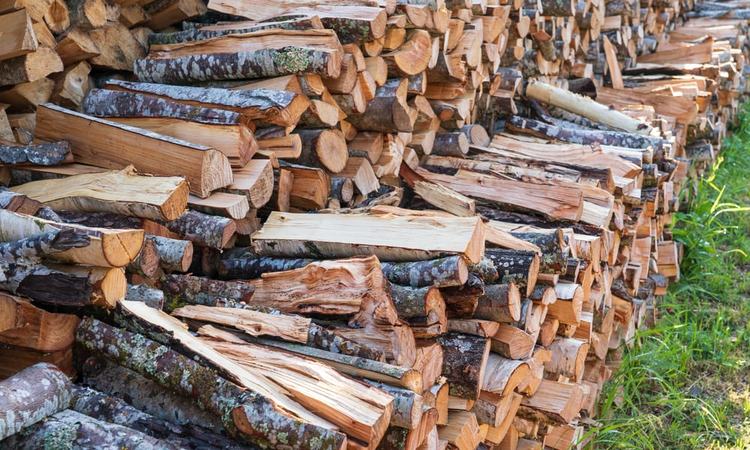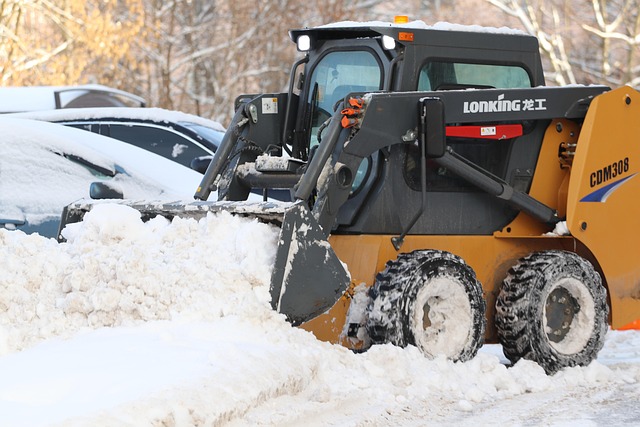Understanding Bank-Owned Farm Tractors
Bank-owned farm tractors represent a significant segment of the agricultural equipment market, offering farmers and agricultural businesses access to quality machinery at potentially reduced costs. These tractors become available when financial institutions repossess equipment due to loan defaults or when banks acquire agricultural assets through various financial transactions. Understanding this market can help farmers make informed decisions about equipment purchases while potentially saving substantial amounts on their agricultural investments.

When financial institutions repossess agricultural equipment or acquire farm assets through foreclosure proceedings, the resulting inventory often includes high-quality tractors and farming machinery. These bank-owned assets create unique opportunities for farmers seeking reliable equipment without the premium pricing typically associated with brand-new purchases.
What Are Bank-Owned Farm Tractors
Bank-owned farm tractors are agricultural vehicles that have come into the possession of financial institutions through repossession, foreclosure, or other financial circumstances. These tractors were previously owned by farmers who experienced financial difficulties, leading to loan defaults that resulted in the bank taking ownership of the collateral. Banks typically acquire these assets to recover outstanding loan amounts and subsequently sell them to recoup their investments.
The condition of bank-owned tractors varies significantly depending on factors such as age, maintenance history, and usage patterns. Some may be relatively new with low operating hours, while others might show considerable wear from extensive agricultural use. Financial institutions usually conduct basic inspections and may provide maintenance records when available, though the depth of information can vary between different banks and lending institutions.
Advantages of Bank-Owned Tractors
Purchasing bank-owned farm tractors offers several compelling benefits for agricultural operations. The primary advantage lies in cost savings, as banks are typically motivated to sell these assets quickly to minimize storage costs and maximize recovery of their investment. This urgency often translates to below-market pricing for buyers.
Another significant advantage involves the potential for finding well-maintained equipment. Many repossessed tractors come from established farming operations that invested in proper maintenance before encountering financial difficulties. Additionally, banks often provide clear title documentation, eliminating concerns about liens or ownership disputes that might arise with private party purchases.
The variety of available equipment represents another benefit, as bank inventories often include tractors from multiple manufacturers and across various horsepower ranges. This diversity allows buyers to compare different models and find equipment that matches their specific operational requirements.
Where to Find Bank-Owned Farm Tractors
Several channels exist for locating bank-owned agricultural equipment. Regional and community banks that specialize in agricultural lending frequently maintain inventories of repossessed farm equipment. These institutions often advertise available tractors through local newspapers, agricultural publications, or their websites.
Auction companies specializing in agricultural equipment regularly conduct sales featuring bank-owned assets. These auctions may occur on-site at bank facilities or at dedicated auction venues. Online auction platforms have also become increasingly popular, allowing banks to reach broader audiences of potential buyers.
Equipment dealers sometimes partner with financial institutions to sell bank-owned inventory through their established sales networks. This arrangement benefits both parties, as dealers gain access to additional inventory while banks leverage existing sales expertise and customer relationships.
| Equipment Type | Typical Age Range | Price Range | Common Features |
|---|---|---|---|
| Compact Tractors | 2-8 years | $15,000-$35,000 | 25-50 HP, loader attachments |
| Utility Tractors | 3-10 years | $25,000-$75,000 | 50-120 HP, PTO, hydraulics |
| Row Crop Tractors | 5-12 years | $60,000-$150,000 | 120-250 HP, GPS ready |
| Large Tractors | 5-15 years | $100,000-$300,000 | 250+ HP, advanced technology |
Prices, rates, or cost estimates mentioned in this article are based on the latest available information but may change over time. Independent research is advised before making financial decisions.
Common Questions About Bank-Owned Tractors
Prospective buyers frequently inquire about warranty coverage for bank-owned equipment. Most bank-owned tractors are sold “as-is” without manufacturer warranties, though some dealers may offer limited warranties on specific components. Buyers should factor potential repair costs into their purchase decisions and consider having equipment inspected by qualified mechanics before finalizing purchases.
Financing options for bank-owned tractors often mirror those available for used equipment purchases. Many banks that sell repossessed equipment also provide financing, though buyers should compare rates and terms with other lenders to ensure competitive arrangements. Some financial institutions offer special financing programs for their own inventory to facilitate quicker sales.
Another common concern involves the availability of service records and maintenance history. While banks attempt to provide available documentation, records may be incomplete due to the circumstances surrounding repossession. Buyers should be prepared to assess equipment condition independently and budget for potential maintenance needs.
The inspection process varies among different selling institutions. Some banks allow detailed pre-purchase inspections, while others may limit access until after purchase. Understanding inspection policies before bidding or making offers helps prevent unexpected surprises and ensures informed decision-making.
Bank-owned farm tractors represent a viable option for agricultural operations seeking quality equipment at competitive prices. While these purchases require careful evaluation and due diligence, the potential savings and equipment availability make this market segment worth considering for many farming operations. Success in this market depends on thorough research, realistic expectations, and proper financial planning to account for both purchase costs and potential maintenance requirements.






